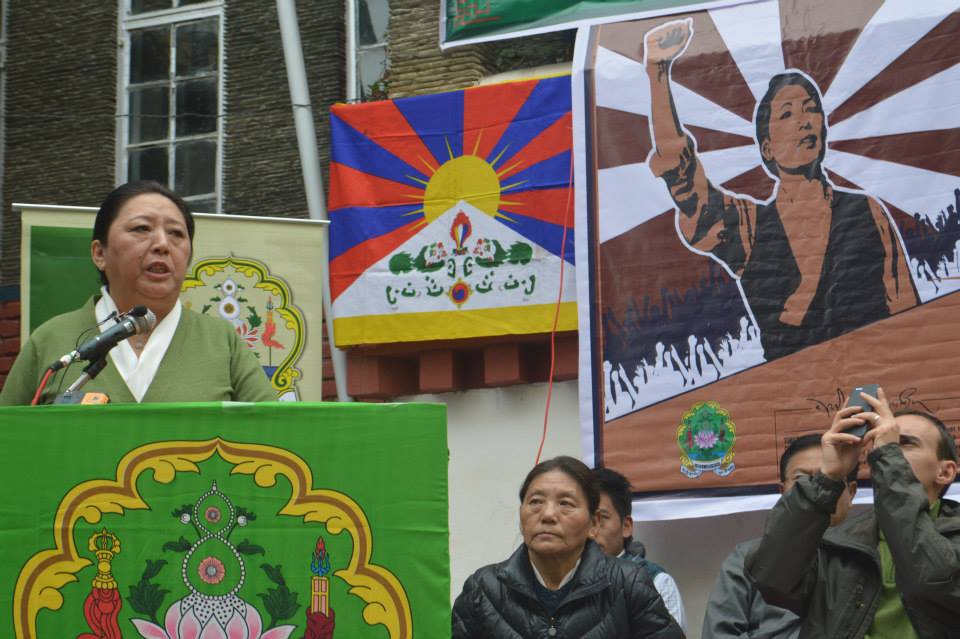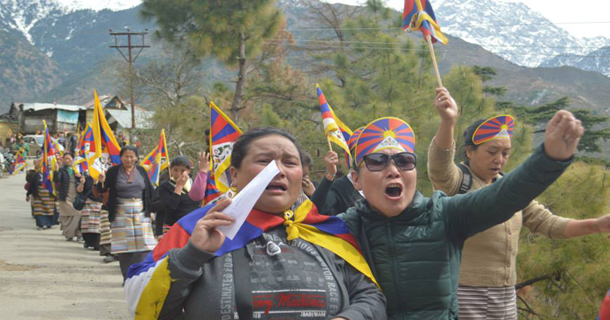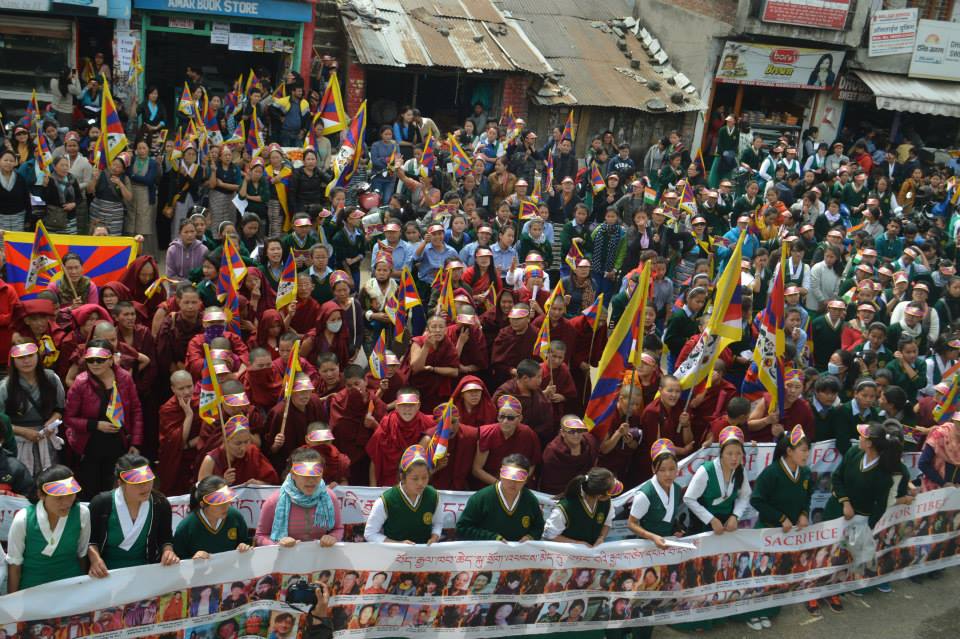March 12 saw schoolchildren, nuns, laypeople and foreign supporters marching from Martyrs’ Pillar in McLeod Ganj to Lower Dharamshala to mark the 56th anniversary of the Tibetan Women’s Uprising Day. Kalon Dolma Gyari, former Deputy Speaker of the Tibetan Parliament and current Home Minister of the Tibetan administration in exile, was chief guest at McLeod Ganj’s Main Tibetan Temple, Tsuglakhang, and she used the platform to appeal for unity among the exile Tibetan non-government organisations.
National Women’s Uprising Day honours the women who gave their lives for the Tibetan cause. A day after the uprising on March 10, 1959, which precipitated the flight of His Holiness the Dalai Lama into exile, thousands of women gathered in front of the Potala Palace in Lhasa for a demonstration which marked the beginning of the Tibetan Women’s movement for independence. In addition to their peaceful protests, the women submitted demands to the Chinese authorities to quit Tibet and made requests of support to India, Nepal and Bhutan, amongst others. Occupying Chinese forces responded by arresting the leaders of the movement along with many other innocent women. Of those arrested, hundreds paid for their actions with their lives and still more were killed for their continued resistance during the Cultural Revolution and the years that followed.
Supporters in Dharamshala who gathered to mark the day observed a minute’s silence in remembrance of these women and all those who have died fighting for a free Tibet, before the Tibetan national anthem and the Tibetan women’s uprising anthem were both sung.
In her speech, Kalon Dolma Gyari said that “the right to commemorate the March 10th uprising anniversary belongs to the entire people of the three provinces of Tibet. So we must collectively respect the significance and meaning, irrespective…personal opinions…and work together.”







 Print
Print Email
Email